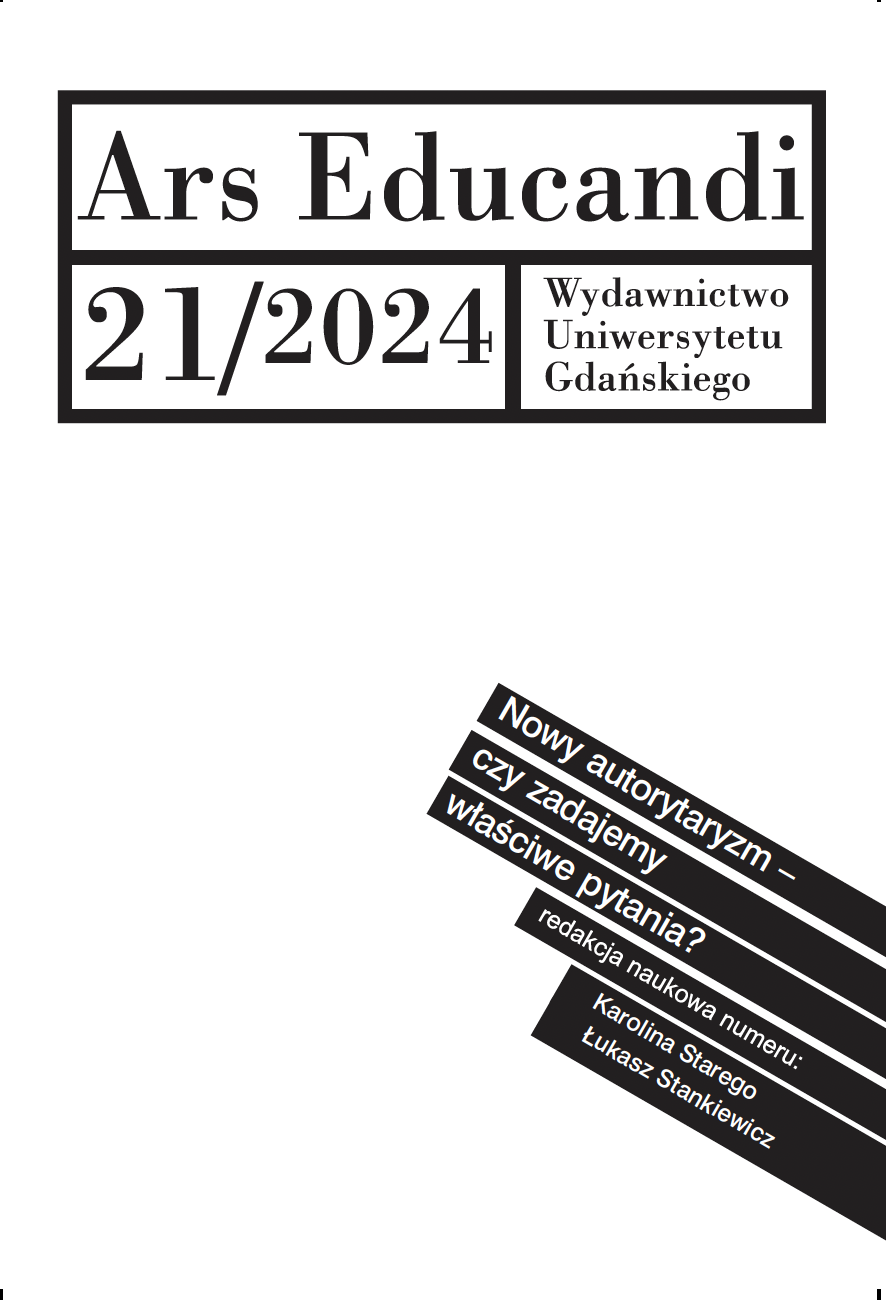Czwarty sektor jako odpowiedź na (brak) działania państwa soft autorytarnego? Trialog aktywistyczno-badawczy o doświadczeniach obywatelskich w latach 2015–2023
DOI:
https://doi.org/10.26881/ae.2024.21.02Słowa kluczowe:
czwarty sektor, mobilizacja hybrydowa, protesty obywatelskie, aktywizm cyfrowy, wypalenie aktywistyczneAbstrakt
Artykuł podejmuje analizę reakcji społeczeństwa obywatelskiego na autorytarne praktyki państwa w Polsce w latach 2015–2023. Autorzy wprowadzają pojęcie „czwartego sektora” jako formy krótkotrwałej, hybrydowej mobilizacji łączącej działalność w przestrzeni cyfrowej z akcjami bezpośrednimi. Przedstawione zostały etapy transformacji zaangażowania obywatelskiego: od masowych demonstracji kobiet i marszów równości, przez spontaniczną pomoc uchodźcom przy wschodniej granicy, aż po wielotysięczne protesty w okresie pandemii COVID-19. Podkreślono rolę mediów zasięgowych w ekspresowej samoorganizacji, jak również ryzyko wykorzystywania lęków przed „Innymi” przez ruchy populistyczne. Autorzy zwracają uwagę na niedostateczne zaufanie instytucjonalne wobec trzeciego sektora oraz na stopniowe zmęczenie społeczne wynikające z ciągłego reagowania na kolejne kryzysy. W zakończeniu zaakcentowano potrzebę refleksji pedagogicznej nad dynamiką przemian społecznych oraz wkładem badań naukowych we wspieranie trwałego rozwoju demokratycznych struktur.
Downloads
Bibliografia
Applebaum A., 2020, Zmierzch demokracji. Zwodniczy powab autorytaryzmu, tłum. P. Tarczyński, Warszawa: Agora.
Krastew I., Holmes S., 2020, Światło, które zgasło. Jak Zachód zawiódł swoich wyznawców, tłum. A. Paszkowska, Warszawa: Wydawnictwo Krytyki Politycznej.
Laclau E., 2009, Rozum populistyczny, tłum. A. Alchimowicz i in., Wrocław: Wydawnictwo Naukowe Dolnośląskiej Szkoły Wyższej.
Snyder T., 2017, O tyranii. Dwadzieścia lekcji z XX wieku, tłum. B. Pietrzyk, Kraków: Znak Horyzont.
Sowa J., 2011, Fantomowe ciało króla. Peryferyjne zmagania z nowoczesną formą, Kraków: Universitas.

 Uniwersyteckie Czasopisma Naukowe
Uniwersyteckie Czasopisma Naukowe




